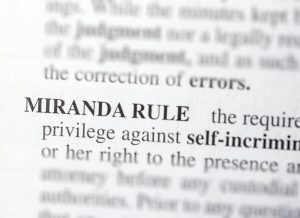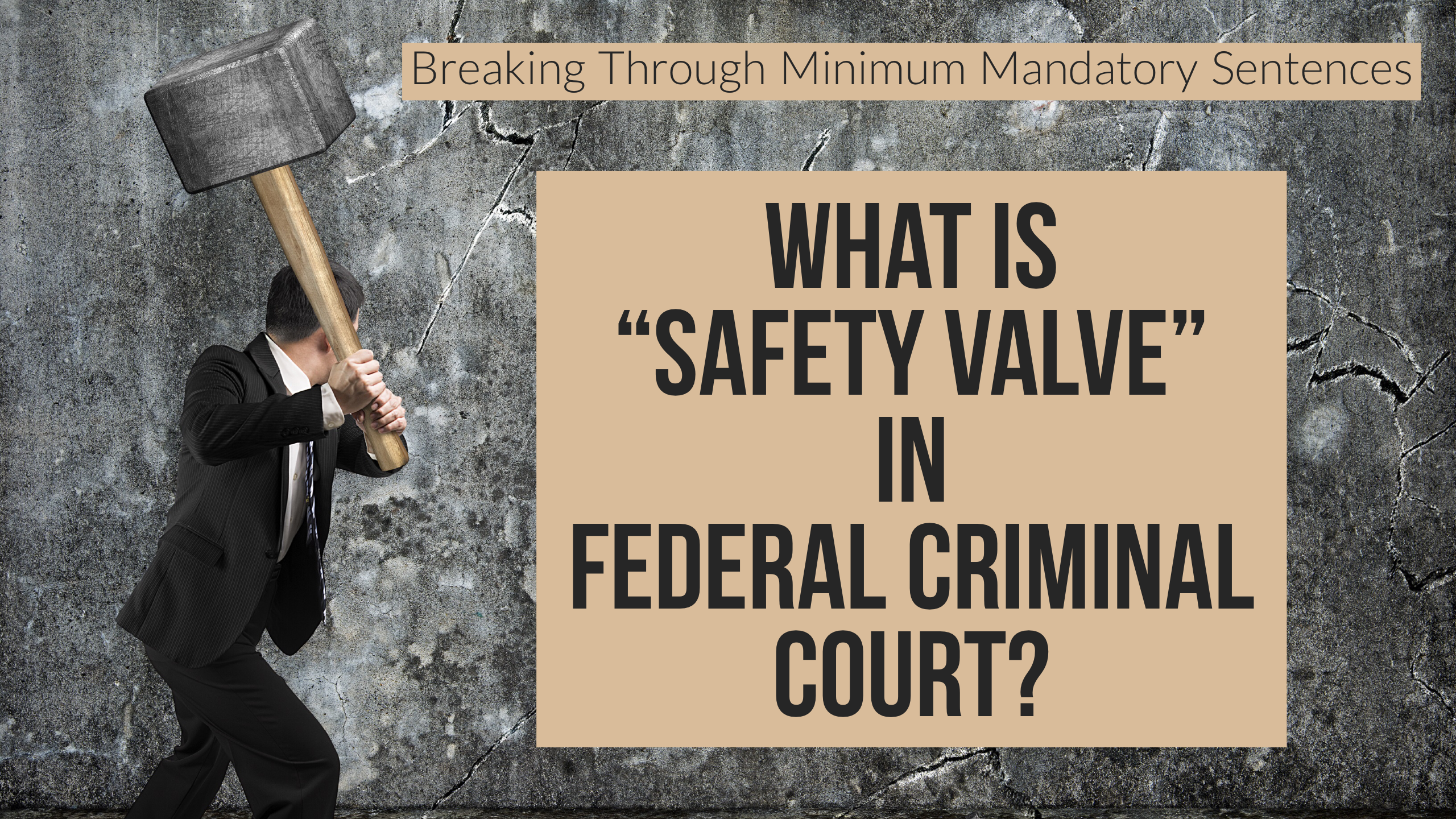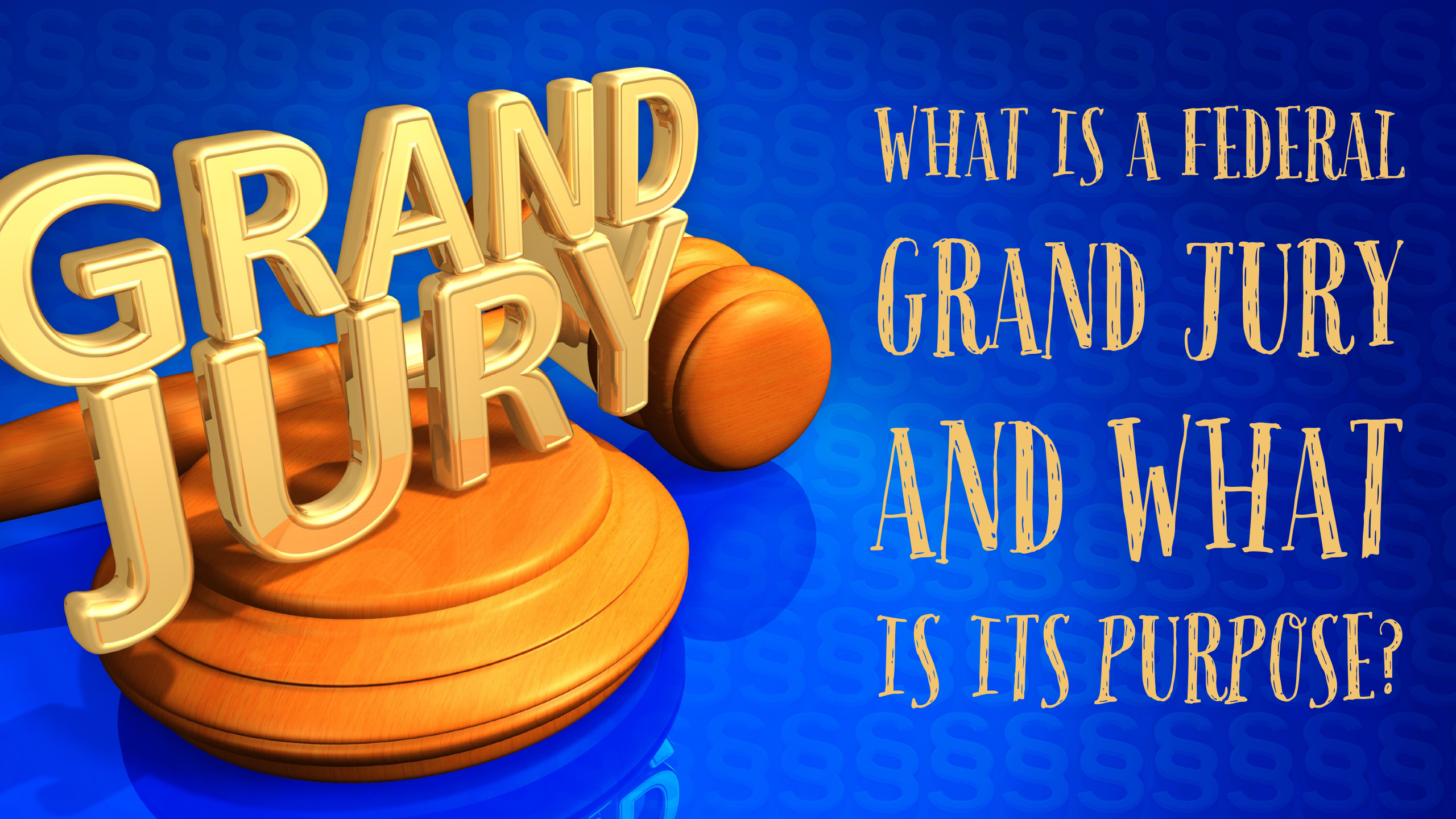Everybody has heard of Miranda rights, but few actually understand what they are and what they do. You may be surprised to learn that police officers do not always have to read you your Miranda rights when they are questioning or even arresting you? Sounds crazy, but it’s true.
The name “Miranda” came from the landmark United States Supreme Court case Miranda v. Arizona in 1966. The issue was whether police officers had to advise a person of his or her Constitutional rights before questioning them about a crime. What constitutional rights? The Fifth Amendment to the Constitution provides the constitutional right against self-incrimination. In other words, the government can’t make you tell them anything that may incriminate you. And the person must be told that he or she has the right to consult with an attorney to discuss the Fifth Amendment right. So, out of the Miranda case, came the Miranda rights or warnings that we all have become accustomed to when someone is arrested.

But Miranda rights only relate to custodial interrogation and the right against self incrimination. So, if you don’t incriminate yourself, no Miranda rights are required. And law enforcement must only advise you of your Miranda rights before interrogating you in a custodial setting. Whether a person is in custody depends on what a reasonable person in the person’s place would believe that they were in custody. So if officers don’t interrogate you or it’s not in a custodial setting, then they don’t have to read you your rights.
 Jacksonville Criminal Lawyer Blog
Jacksonville Criminal Lawyer Blog




 The District Court agreed with the government and sentenced Mr. Wooden to 16 years with the 15 year minimum mandatory sentence as an Armed Career Criminal. Without the Armed Career Criminal status, Mr. Wooden was looking at a maximum sentence of 10 years, with guidelines of around 21 months. Mr. Wooden appealed to the Sixth Circuit Court of Appeals, which agreed with the District Court. The Supreme Court granted certiorari based on a conflict between various circuits.
The District Court agreed with the government and sentenced Mr. Wooden to 16 years with the 15 year minimum mandatory sentence as an Armed Career Criminal. Without the Armed Career Criminal status, Mr. Wooden was looking at a maximum sentence of 10 years, with guidelines of around 21 months. Mr. Wooden appealed to the Sixth Circuit Court of Appeals, which agreed with the District Court. The Supreme Court granted certiorari based on a conflict between various circuits.
 A Federal Grand Jury is an integral part of almost any federal criminal case. Grand jury testimony often becomes a key issue in a federal criminal trial. But what is a Grand Jury exactly? How is it different than any other jury? How is the federal system different than in the Florida criminal justice system? What are your rights when it comes to a Grand Jury?
A Federal Grand Jury is an integral part of almost any federal criminal case. Grand jury testimony often becomes a key issue in a federal criminal trial. But what is a Grand Jury exactly? How is it different than any other jury? How is the federal system different than in the Florida criminal justice system? What are your rights when it comes to a Grand Jury?